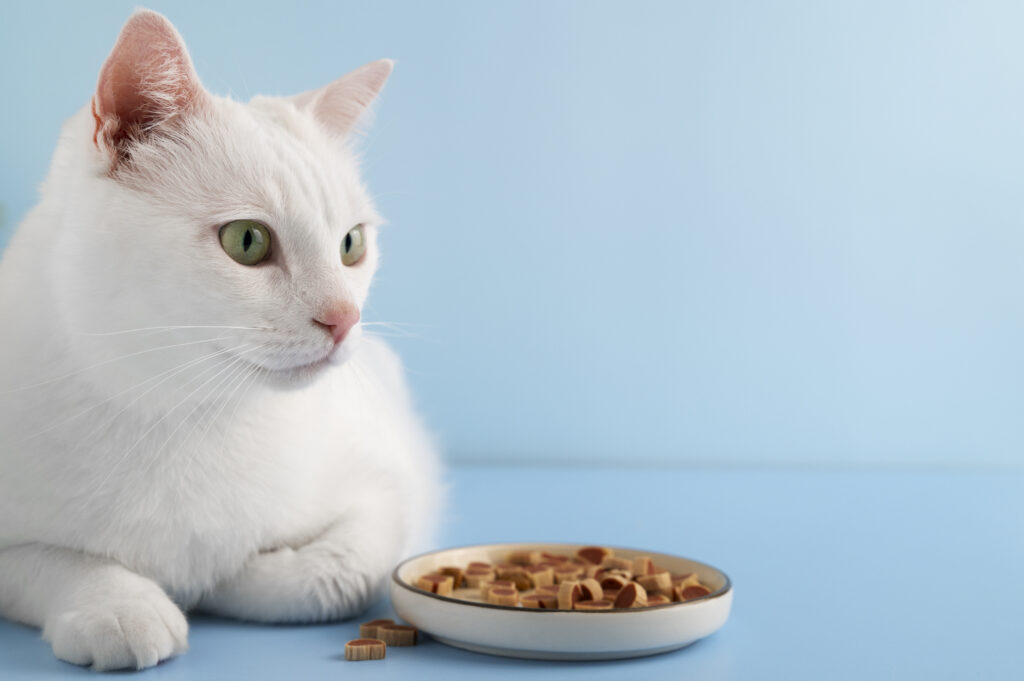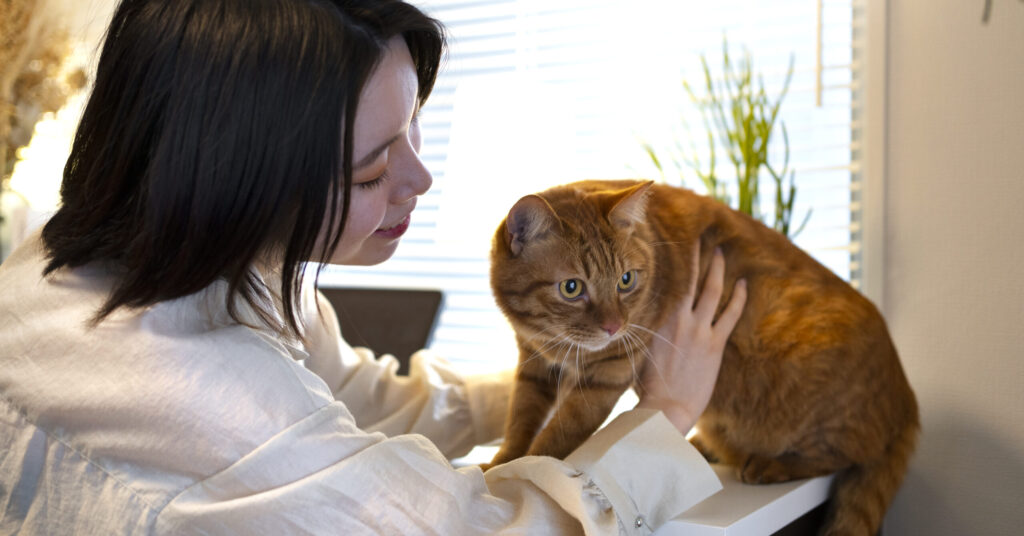As a devoted cat owner in Malaysia, you’re likely meticulous about providing the best care for your feline companion. From their playful antics to their comforting purrs, they enrich our lives in countless ways. But are you truly aware of the hidden hero in their diet, the unsung champion of their well-being? We’re talking about taurine for cats, a seemingly simple amino acid that plays a profoundly crucial role in their overall health. Whenever the topic of feline nutrition arises, the word “taurine” inevitably surfaces. But what exactly is it, how does it work, and why is it so utterly essential for a healthy feline living here in our Malaysian homes? This comprehensive guide will delve deep into the world of taurine, uncovering its vital functions and highlighting why ensuring your cat gets enough of this nutrient is paramount for a long and vibrant life.
What is Taurine?
At its core, taurine for cats is an amino acid. For those with a scientific inclination, its molecular structure is elegantly simple: C₂H<0xE2><0x82><0x87>NO₃S. However, unlike most other amino acids that link together in long chains to form the diverse proteins necessary for a myriad of bodily functions, taurine in cats exists freely within many of their body’s cells and tissues. It’s also a key component of bile, a digestive fluid produced by the liver and secreted into the intestinal tract to aid in the breakdown of fats. Think of taurine not as a building block in the traditional sense, but as a vital functional molecule present throughout your cat’s system, actively participating in numerous physiological processes.
How Taurine Works for Cats
The way taurine works for cats is multifaceted and deeply integrated into their unique biology. Unlike omnivores like us humans, who possess the enzymatic machinery to synthesize sufficient amounts of taurine from other amino acids (specifically methionine and cysteine), felines have a limited capacity for this internal production. The enzyme required for this conversion, cysteine dioxygenase, is often in short supply in cats and is also needed for other critical metabolic pathways. This inherent biological limitation makes dietary intake of taurine absolutely crucial for cats. Their bodies simply cannot manufacture enough of this vital nutrient to meet their needs. Consequently, without an adequate supply of taurine for cats in their daily meals, they inevitably develop a deficiency, leading to a cascade of potentially severe health problems.
The Benefits of Taurine for Cats
The benefits of taurine for cats are wide-ranging and underscore its indispensable role in maintaining their health:
- Vision: Taurine plays a fundamental role in the structure and function of the retina, the light-sensitive tissue at the back of the eye. It’s essential for the health of both rods (responsible for low-light vision) and cones (responsible for color vision and sharpness). A lack of taurine for cats can lead to Central Retinal Degeneration (CRD), a progressive and irreversible condition that ultimately causes blindness.
- Heart Health: Taurine is critical for maintaining the proper function of the heart muscle. Within heart muscle cells, it helps regulate the concentrations of calcium and other charged particles across cell membranes, which is essential for normal contraction. Taurine deficiency has been directly linked to Dilated Cardiomyopathy (DCM), a severe form of heart disease where the heart muscle weakens and enlarges, eventually leading to congestive heart failure. Early supplementation with taurine for cats can sometimes reverse DCM if caught in time.
- Reproduction: Adequate levels of taurine in cats are vital for successful reproduction in female cats (queens). Deficiency can lead to reproductive failure, including decreased fertility and increased rates of miscarriage.
- Growth and Development: Kittens born to taurine-deficient mothers often experience poor growth and neurological development. Ensuring sufficient taurine intake for kittens is crucial for their healthy start in life.
- Digestion: Taurine is a key component of bile acids, which are essential for the digestion and absorption of fats and fat-soluble vitamins in the intestinal tract.
- Immune Function: Emerging research suggests that taurine for cats also plays a role in supporting a healthy immune system.
Symptoms of Lack of Taurine
Recognising the symptoms of a lack of taurine in your cat is crucial for early intervention. While some signs may be subtle initially, prolonged deficiency can lead to severe and irreversible damage. Be vigilant for the following:
- Vision Problems: Progressive vision loss, including difficulty seeing in low light or complete blindness. You might notice your cat bumping into objects or appearing disoriented.
- Lethargy and Weakness: A general lack of energy and reluctance to play or move around.
- Difficulty Breathing: This can be a sign of developing Dilated Cardiomyopathy (DCM).
- Loss of Appetite: A decreased interest in food can further exacerbate the deficiency.
- Poor Coat Condition: A dull or unhealthy-looking coat.
- Reproductive Issues (in females): Difficulty conceiving or carrying pregnancies to term.
- Poor Growth in Kittens: Kittens may fail to thrive and develop at a normal rate.
If you observe any of these symptoms of taurine deficiency in your beloved feline, it is imperative to consult with your veterinarian in Malaysia immediately.
The Importance of Choosing the Right Diet
Fortunately for cat owners in Malaysia, the pet food industry has long recognized the critical need for taurine in cats’ diets. Barring any manufacturing errors, virtually all commercially prepared cat foods formulated for felines now contain sufficient amounts of this essential amino acid. This wasn’t always the case historically, which led to the discovery of the link between taurine deficiency and the aforementioned health issues.
However, taurine deficiency can still be a significant concern when cats are fed homemade diets. Unlike animal-based proteins (meat, fish, poultry), which are the primary sources of taurine, plant-based proteins contain very little to no taurine. Therefore, cats on vegetarian or vegan diets are at the highest risk of developing this deficiency.
This is where choosing the right diet becomes paramount. At Pet Castle Ventures, we understand the vital importance of taurine for cats. That’s why our premium HealthyMews and SuperbBowl cat food formulas are carefully crafted with high-quality animal-based proteins, ensuring they contain optimal levels of taurine to support your feline companion’s heart health, vision, reproductive function, growth, and overall well-being. You can have peace of mind knowing that with HealthyMews and SuperbBowl, you are providing your cat with a complete and balanced diet that prioritizes this essential nutrient. We believe that every bite should contribute to a long, healthy, and happy life for your cherished cat.
Conclusion
Taurine for cats is not just another ingredient; it’s a cornerstone of their health. Its critical roles in vision, heart function, reproduction, growth, and digestion underscore its absolute necessity in their daily diet. By choosing a high-quality commercial cat food like HealthyMews or SuperbBowl, you are actively safeguarding your feline friend against the devastating consequences of taurine deficiency. Remember, a well-nourished cat is a happy and healthy cat, ready to fill your Malaysian home with purrs, cuddles, and endless joy for years to come. Make the informed choice for their well-being – choose a diet rich in the essential power of taurine.
Resources:
- IAMS, https://my.iams.asia/cat/cat-articles/importance-taurine-kitten-foods
- Case L, et al. Canine and Feline Nutrition. 3rd ed. Maryland Heights, MO: Mosby Elsevier, 2011.



